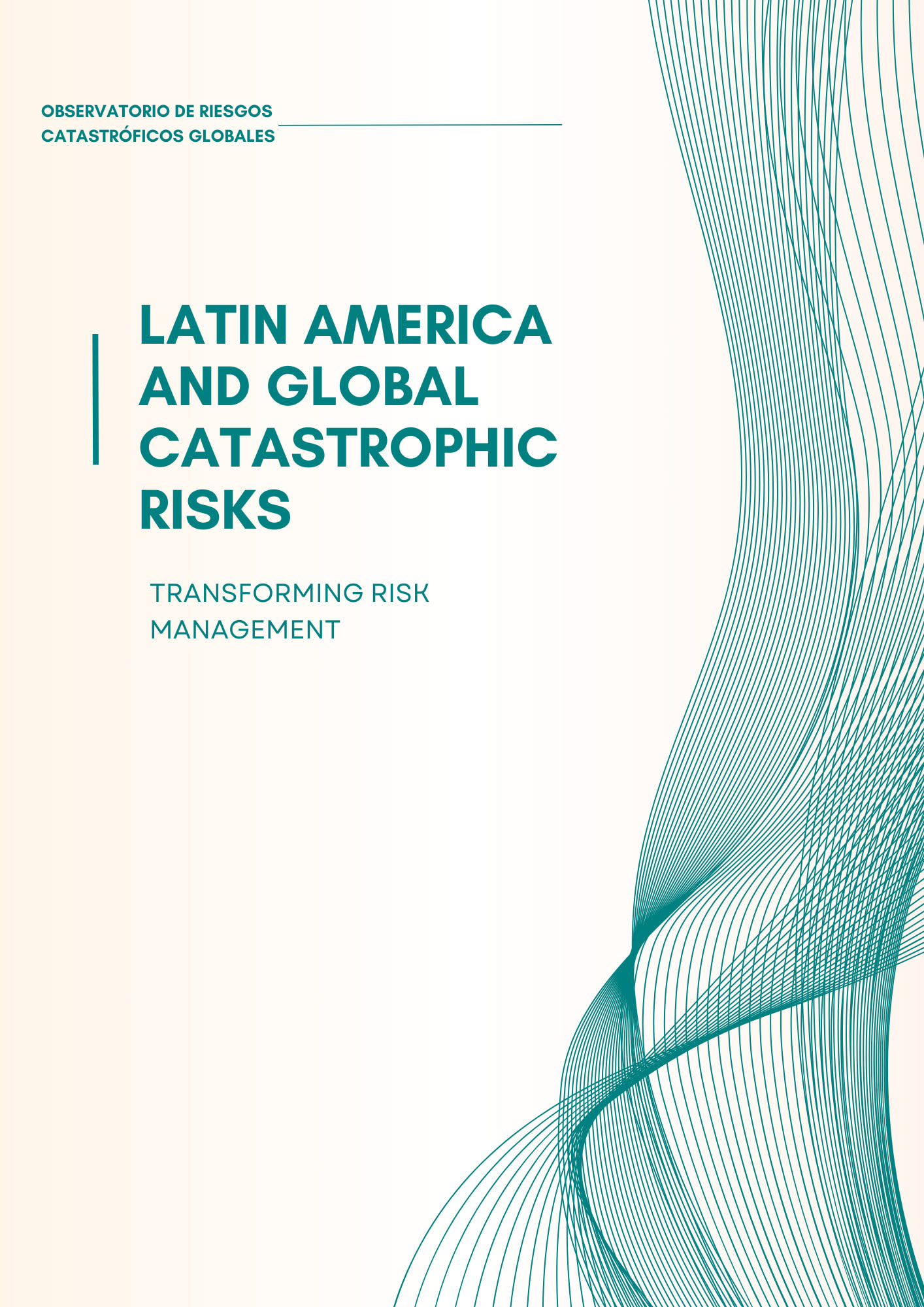
Full report here
DOI 10.13140/RG.2.2.25294.02886
Summary
This report aims to comprehensively analyze risk management systems in Latin American countries, focusing on strengthening the management of Global Catastrophic Risks (GCR). GCRs are defined as those with the potential to harm human well-being on a global scale. Although various risks that meet this definition have been identified, this work focuses on the risks associated with artificial intelligence (AI), biological risks, and abrupt sunlight reduction scenarios (ASRS).
These risks represent global challenges that require international cooperation and adequate management. Various stakeholders have shared their growing concern around GCRs. Among them is the Secretary-General of the United Nations, the Organization for Economic Cooperation and Development (OECD), the United Nations Office for Disaster Risk Reduction (UNDRR) (Appendix 1 - UNDRR interview), the World Economic Forum (WEF), as well as civil society organizations and research centers. To prevent them, countries like the United States, the United Kingdom, and Norway have articulated their own local efforts, such as legislation and national plans.
For its part, Latin America has had to strengthen its institutions and coordination mechanisms at the national and regional levels due to its high exposure to these risks. Although a minority of Latin American countries have implemented some strategies to prevent, mitigate, or respond directly or indirectly to GCRs, efforts are limited. Despite this, we highlight that, in the past, the region has demonstrated its capacity to contribute to initiatives related to nuclear disarmament and the elimination of biological weapons.
In this context, we recommend that Latin America stay informed to face other emerging threats. Lack of preparation jeopardizes its stability and progress, significantly impacting key areas such as the economy and public health. Based on the three risks of interest, a series of measures are proposed for the countries of the region:
Based on the work we have carried out, we conclude that Latin America will benefit from adopting a wider perspective and a proactive attitude in adequately managing catastrophic risks. This implies recognizing biases, strengthening institutions, and promoting anticipatory governance that addresses regional vulnerabilities. Once this “risk knowledge” has been accumulated, we recommend that the region strengthen its prevention and mitigation capabilities.
Infographics
Download here
 | |
Thanks for this report. It’ll be quite useful.
I’d like to share some critical remarks I had previously sent RCG by e-mail:
Definition of “RCG”
<Los RCG se definen como aquellos con el potencial de infligir un daño grave al bienestar humano a escala global. > (p.2; cf. p. 6)
This definition might be too wide – it could include the global financial crisis of 2008, for instance. It is constrained, though, by the subsequent sentence: <Si bien se han identificado diversos riesgos que cumplen con esta definición, el presente trabajo se enfoca en los riesgos asociados a la inteligencia artificial, los riesgos biológicos y los escenarios de reducción abrupta de la luz solar.>
However, afterwards, a lot of the material is based on scientific diplomacy, and preparedness for local disasters and insurance that is not directly related to these types of events. But then, it’s not clear why other risks are not considered, such as the threat of conflict, extreme global warming, or other risks with cascading effects. They provide historical examples of catastrophes; an ERALs like the Tambora eruption (1815-16) caused “the year without summer”, but didn’t kill more than 250k people; the ENSO event of 1876-79 killed around 30-50 million people (s. Our World in Data; https://doi.org/10.1175/JCLI-D-18-0159.1).
Also, I don’t get what you mean by “seguros por riesgos catastróficos” (p. 8); if you mean insurance for local disasters, sure, people should buy it more often, there’s probably a market failure… on the other hand, there is also significant moral hazard here: people will often fail to avoid risky regions because they are insured. However, if you mean RCG insurance… I really don’t know this could work, as no current insurance system could be expected to survive such a loss in global output – but it would interesting to explore some possible arrangements in depth[1].
2.Things I missed most:
a) More emphasis on geographical and economic aspects of Latin America
According to Wikipedia, Latin America has 656 million people, 20,000 km2, and a combined nominal GDP of US$5.188 trillion and a GDP PPP of US$10.285 trillion; but more than half of it is in Mexico and Brazil, which amount to 350 million people, 10,500 km2, and a combined GDP of aprox. US$4 trillion. And yet, they barely show up in the assessment; Brazilian policies are totally absent from appendix II.
Also, I think the report would have greatly benefitted from an assessment of the state capacity and fiscal space in Latin American countries (perhaps you considered it unnecessary, as it is taken into account by the INFORM index and by Dahl’s GCR Index?)
b) Historical examples of relevant disasters:
Such as Grande Seca—Wikipedia (included in the ENSO event of 1876-79), Haiti’s earthquake and cholera epidemics, Andean seismic and volcanic events, etc.
3. Outdated reference?
“Se estima que los daños por desastres en América Latina y el Caribe han ascendido a unos US$20.000 millones anuales en una década, con más de 45.000 muertes y 40 millones de personas afectadas (Kiepi e Tayson, 2002)”.
Could we find a source more up to date? This is from more than twenty years ago, when the region’s GDP and population was quite smaller. By way of comparison, the National Confederation of Municipalities in Brazil estimates that natural disasters have caused losses of R$ 400 billion (US$S80 billion) in the last decade in Brazil alone (more conservative estimates put that value around half of this). If that sounds like a lot, consider that Newman and Noy (2023) estimate that global warming alone causes US$143 billion in damage per year in the world (of which 63% refers to the value of deaths), and that Latin America accounts for 8.4% of the world’s population and 7.5% of GDP – from which we could expect at least US$7 billion to US$13 billion of annual damage in the region just because of global warming.
[1] What one usually wants from an insurance scheme is: a) pool the risk between different agents, and b) internalize ex ante the costs of risks, and c) hedge or protection against uncertain events. There are some proposed mechanisms along these lines: i) World Climate Bank (Broome & Foley, 2016); (ii) the Glasgow Loss and Damage Mechanism; iii) Cotton-Barratt’s proposal of insurance for dual-use pathogen research; etc.